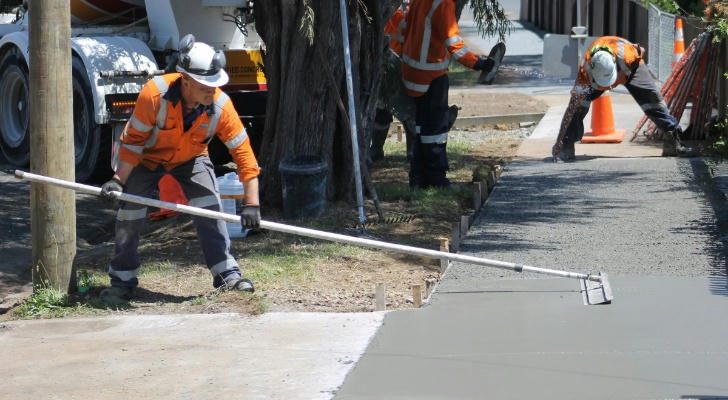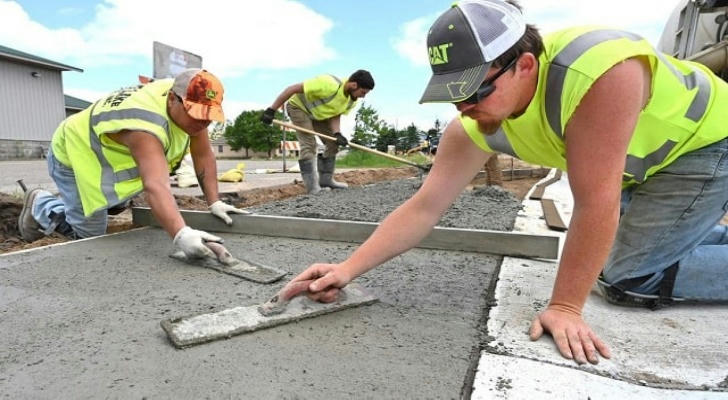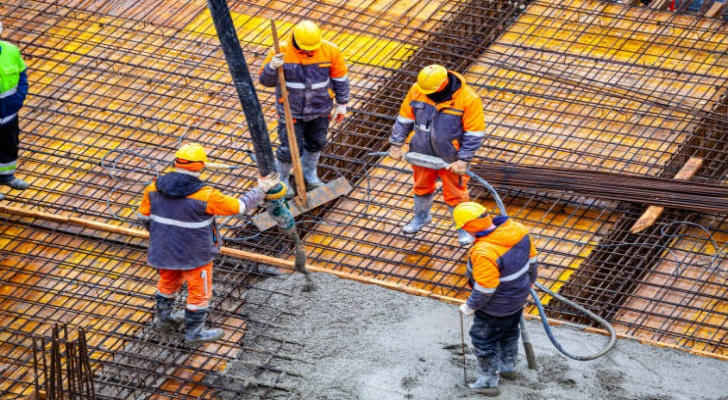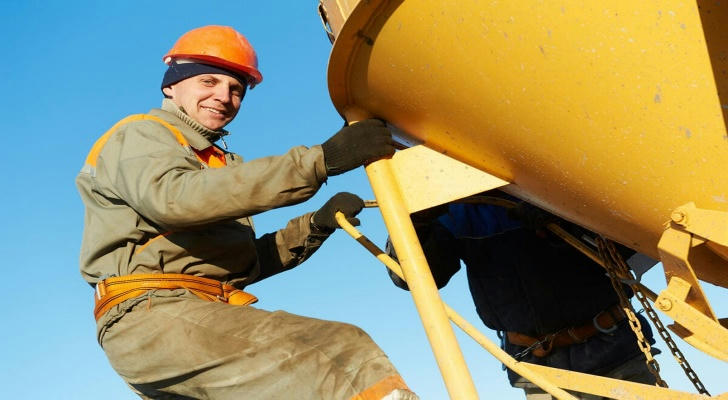High-Paying Concrete Worker Recruitment: Join a Top Construction Team to Build the Future
As the construction industry continues to grow in the United States, the demand for skilled concrete workers is on the rise. Whether it's for infrastructure projects, commercial buildings, or residential developments, concrete plays a crucial role in every construction project. For those with experience or a willingness to learn new skills, becoming a concrete worker offers not only high pay but also a stable career with a wide range of benefits. Many construction companies are actively recruiting professional concrete workers. This article will detail the job requirements, responsibilities, salary, benefits, and career prospects for concrete workers.

Why Choose a Career as a Concrete Worker?
Concrete workers are an indispensable part of the construction industry. As a concrete worker, you will be involved in pouring foundations, laying pavement, casting walls, and various other concrete-related tasks on construction projects. This role requires technical skills and a keen attention to detail, as precision is critical to ensure the structural integrity and safety of the concrete work.
With the growing demand for new buildings and infrastructure development in the U.S., especially in major urban areas, the need for concrete workers has surged. Furthermore, as construction techniques advance, modern concrete workers are learning new and innovative skills, such as working with high-strength concrete and using sustainable materials in construction.
Job Requirements and Qualifications
Many companies set certain experience and skill requirements when hiring concrete workers. The following are typical qualifications for this role:
Experience: Most construction companies require applicants to have at least 1-2 years of experience in concrete work. Some companies also offer on-the-job training for those without prior experience but who are willing to learn.
Physical Fitness: Concrete work is physically demanding, involving heavy lifting, long hours on your feet, and working in varying weather conditions.
Skills: A good understanding of concrete pouring, smoothing, and finishing techniques, as well as familiarity with construction tools and the ability to follow blueprints and design plans.
Safety Awareness: Construction sites have inherent risks, so concrete workers must follow strict safety protocols to minimize accidents and ensure a safe working environment.
Teamwork: Concrete work is often a team effort, so strong communication skills and the ability to work well with others are essential.

Salary and Benefits
Salaries for concrete workers vary depending on the company, location, and experience level. According to the U.S. Bureau of Labor Statistics, the average annual salary for concrete workers typically ranges from $45,000 to $55,000. However, skilled workers with significant experience can earn $70,000 or more, particularly in high-demand areas or large projects.
In addition to base salaries, many construction companies offer the following benefits:
Health Benefits: Comprehensive health insurance, including medical, dental, and vision coverage, to ensure workers are well protected while on the job.
Retirement Plans: Many companies offer a 401(k) retirement plan with company-matching contributions to help workers save for the future.
Paid Time Off: Paid vacation days, sick leave, and holiday pay to ensure workers can take time off to recharge.
Career Advancement: With experience, concrete workers can move into roles such as project supervisor, construction manager, or team leader, opening up opportunities for career progression.
Training and Education: Many companies offer training programs to help workers develop their skills and stay current with new construction technologies, increasing their value in the job market.

Work Environment and Career Outlook
• Concrete workers typically work outdoors, which means they must be adaptable to varying weather conditions. They may have to work in extreme heat during the summer or cold temperatures in winter. Additionally, construction sites can be noisy, and there are certain safety risks involved, so workers must follow safety protocols carefully.
• Despite these challenges, the career outlook for concrete workers is highly positive. According to the U.S. Bureau of Labor Statistics, the construction industry is expected to continue expanding, particularly in infrastructure projects, road repairs, and residential development. This will lead to a sustained demand for concrete workers in the coming years. As a result, choosing a career as a concrete worker provides not only stable job opportunities but also long-term career growth and salary increases.
• Recently, the market demand for concrete workers has shown an upward trend, especially in the fields of infrastructure construction and real estate development. With the advancement of urbanization worldwide and the growth of large-scale public works projects, such as high-speed railways, highways, bridges and urban complexes, the demand for on-site concrete workers has become more urgent.
• However, the current market is also facing the problem of the pursuit of skilled workers. On the one hand, the younger generation's interest in physical occupations has declined, resulting in a shortage of new forces; on the other hand, the industry's requirements are gradually shifting towards high quality and high standards, requiring workers to not only have the first-class basic skills, but also quickly master the operation of modern equipment and advanced construction technology.
What Can We Gain from a Career as a Concrete Worker?
A career as a concrete worker offers stable income, professional skill development, and diverse opportunities for career growth. Below are the key benefits and attractions of this profession:
1. Financial Benefits
Competitive Pay: Concrete workers are often paid hourly, and skilled workers can earn a higher wage.
Steady Work Opportunities: The demand for concrete workers remains stable due to infrastructure projects, residential developments, and commercial construction.
2. Job Stability
High Demand: Concrete work is essential in construction, covering foundations, bridges, roads, and more.
Long-Term Employment Security: Even during economic downturns, infrastructure projects typically continue, ensuring stable demand.
3. Skill Development
Specialized Techniques: Workers gain expertise in mixing, pouring, shaping, and finishing concrete, mastering the entire construction process.
Advanced Knowledge: Understanding different types of concrete and modern construction techniques, such as precast and high-strength concrete, adds to career competitiveness.
4. Career Advancement Opportunities
Clear Growth Path: Progression from entry-level worker to crew leader, site supervisor, or even construction contractor offers significant potential.
Entrepreneurial Opportunities: With experience, workers can independently take on concrete construction projects.
5. Sense of Achievement and Contribution
Satisfaction from Completed Projects: Witnessing a building rise from its foundation provides a strong sense of accomplishment.
Community Impact: Participating in infrastructure projects like bridges and roads helps improve society and the environment.
6. Flexibility and Variety
Diverse Projects: From residential homes to large-scale commercial ventures, every project presents unique challenges and experiences.
Flexible Schedules: Many projects allow workers to choose between full-time and part-time roles based on their needs.
7. Teamwork and Networking
Collaboration Skills: Concrete work requires close coordination with designers and workers in other trades, enhancing communication and teamwork.
Networking Opportunities: Building relationships with clients and industry professionals during projects can lead to future collaborations.
Who Is This Career Suitable For?
Individuals who enjoy physical labor and working outdoors.
Those seeking a stable income through learning technical skills.
People interested in the construction industry and willing to develop long-term careers.
Conclusion
A career as a concrete worker combines technical expertise, job stability, and a sense of accomplishment. It is an integral part of the construction industry and a rewarding choice for those willing to invest time and effort.

